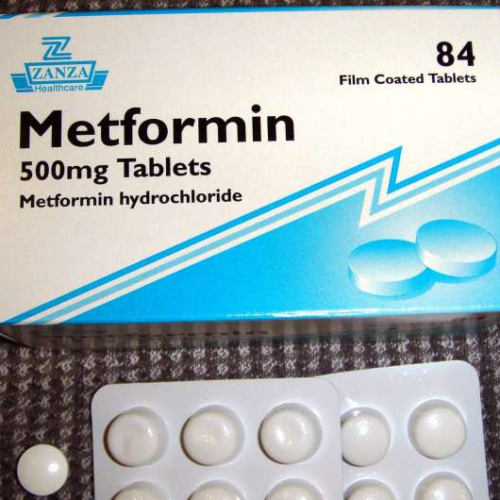by University of Oxford Credit: Pixabay/CC0 Public DomainResearch led by scientists from the Universities of Oxford and Edinburgh has found that early good blood glucose control can minimize the lifetime risk of diabetes-related complications, including heart attacks, kidney failure and vision loss. These latest results from the UK Prospective Diabetes Study (UKPDS), one of the...
Tag: <span>Diabetes</span>
Study shows glucose levels affect cognitive performance in people with type 1 diabetes differently
by McLean Hospital Credit: Wikimedia CommonsA new study led by researchers at McLean Hospital (a member of Mass General Brigham) and Washington State University used advances in digital testing to demonstrate that naturally occurring glucose fluctuations impact cognitive function in people with type 1 diabetes (T1D). Results of the study, published in npj Digital Medicine,...
Weight loss caused by common diabetes drug tied to ‘anti-hunger’ molecule in study
by Stanford University Medical Center Metformin 500mg tablets. Credit: public domainAn “anti-hunger” molecule produced after vigorous exercise is responsible for the moderate weight loss caused by the diabetes medication metformin, according to a new study in mice and humans. The molecule, lac-phe, was discovered by Stanford Medicine researchers in 2022. The finding, made jointly by...
Progress in developing specific immunotherapies for type 1 diabetes
GERMANS TRIAS I PUJOL RESEARCH INSTITUTE IMAGE: IGTP AND AHEAD THERAPEUTICS TEAM view moreCREDIT: IGTP Researchers from Germans Trias i Pujol Research Institute (IGTP) and Ahead Therapeutics SL have been exploring a treatment based on liposome-type nanoparticles to address the autoimmunity of type 1 diabetes for years. A study recently published in the Journal of...
Resistant starch diet proves a game changer for weight loss and diabetes control
By Dr. Chinta SidharthanFeb 27 2024Reviewed by Susha Cheriyedath, M.Sc.In a recent study published in the journal Nature Metabolism, a team of scientists investigated whether modulation of the gut microbiome using dietary fiber supplementation in the form of resistant starch could help with insulin resistance and weight loss and offer a potential treatment avenue for...
Researchers identify new mechanism that could improve the efficiency of diabetes treatments
by University of Barcelona Proposed mechanistic model for the hepatic effects of Gdf15 deficiency on fibrosis, gluconeogenesis and fatty liver via the TGF-β1-SMAD3 pathway. Credit: Metabolism (2024). DOI: 10.1016/j.metabol.2023.155772A study led by the University of Barcelona and the Biomedical Research Networking Center in Diabetes and Associated Metabolic Disorders (CIBERDEM) reveals how a new mechanism could improve...
Two-Step Screening Uncovers Heart Failure Risk in Diabetes
Antara Ghosh TOPLINE:A two-step screening, using a risk score and biomarkers, can identify patients with diabetes at a higher risk for heart failure who will most likely benefit from preventive drugs. METHODOLOGY:Researchers compared screening methods and downstream risk for heart failure in 5 years, particularly those without atherosclerotic cardiovascular disease (ASCVD).They pooled data from 4889...
Diabetes and Hydration: Are You Drinking Enough Water?
By Erin Davis A woman stays hydrated during a workout by drinking from a water bottleDo people with diabetes have special hydration requirements? Here’s how water affects blood sugar – plus tips for getting more much-needed fluids. Between carrying a water bottle around and fitness apps reminding you to hydrate, there’s no reason you shouldn’t...
For diabetes and liver cancer, study suggests new screening guidelines
by Krista Conger, Stanford University Medical Center Collagen fibers in a three-dimensional hydrogel (left panel). When advanced glycation end products—a byproduct of poorly controlled diabetes—are added (right), the fibers are shorter and more cross-linked, creating conditions that favor cancer progression. Credit: Weiguo FanFor centuries, doctors have used their hands as essential diagnostic tools—exploring joints and palpating...
‘Subtle Changes’ to the 2024 ADA Standards of Care in Diabetes
Anne L. Peters, MD The new American Diabetes Association Standards of Care-2024 is a really interesting, updated document. There aren’t any huge headlines, but there are many subtle changes. I think it’s important that people really understand what the guidelines say and how we can apply this to patients. The guidelines are long. There are...







